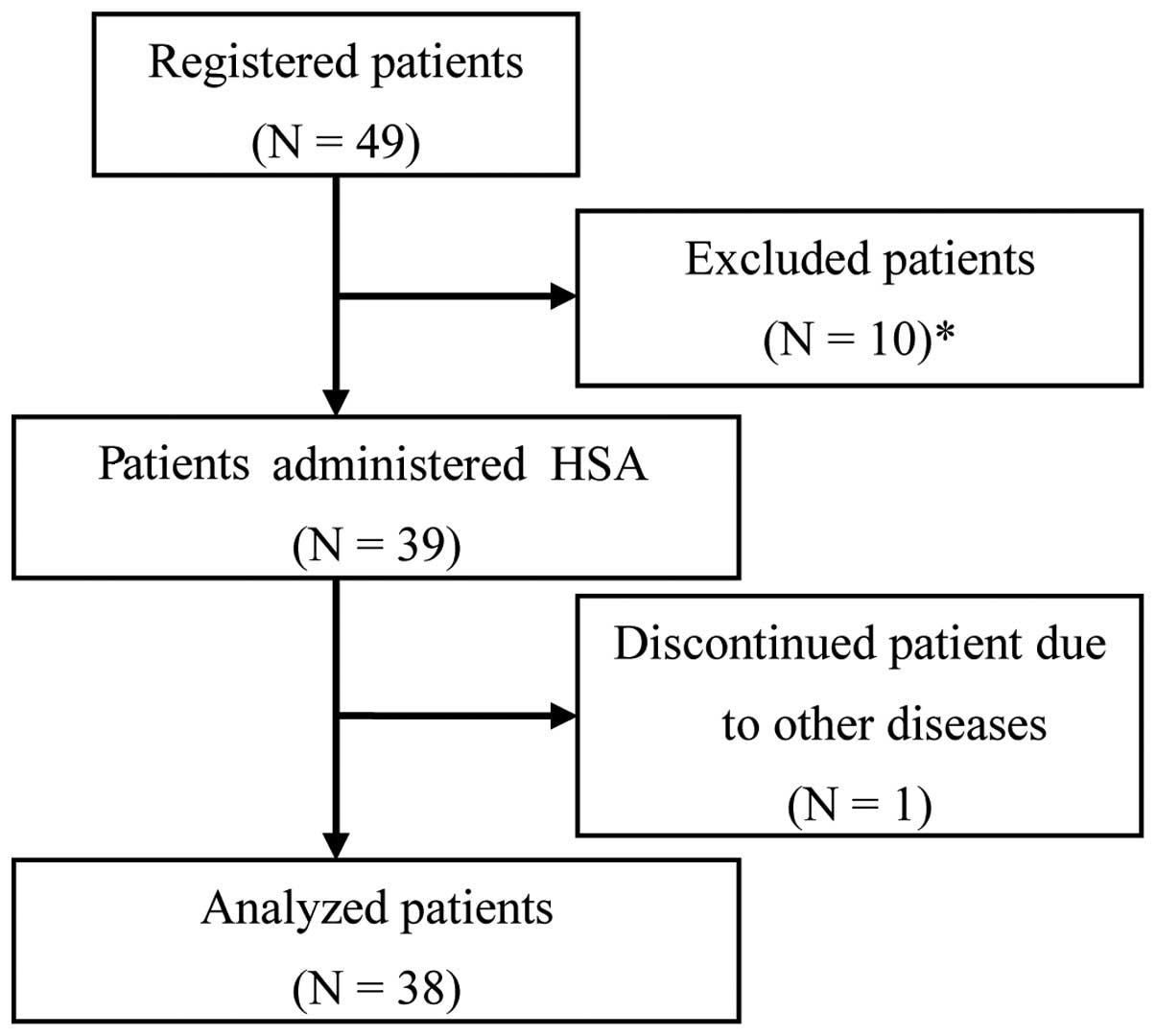Spandidos Publications style
Nakamura T, Sata M, Hiroishi K, Masaki N, Moriwaki H, Murawaki Y, Yatsuhashi H, Fujiyama S and Imawari M: Contribution of diuretic therapy with human serum albumin to the management of ascites in patients with advanced liver cirrhosis: A prospective cohort study. Mol Clin Oncol 2: 349-355, 2014.
APA
Nakamura, T., Sata, M., Hiroishi, K., Masaki, N., Moriwaki, H., Murawaki, Y. ... Imawari, M. (2014). Contribution of diuretic therapy with human serum albumin to the management of ascites in patients with advanced liver cirrhosis: A prospective cohort study. Molecular and Clinical Oncology, 2, 349-355. https://doi.org/10.3892/mco.2014.245
MLA
Nakamura, T., Sata, M., Hiroishi, K., Masaki, N., Moriwaki, H., Murawaki, Y., Yatsuhashi, H., Fujiyama, S., Imawari, M."Contribution of diuretic therapy with human serum albumin to the management of ascites in patients with advanced liver cirrhosis: A prospective cohort study". Molecular and Clinical Oncology 2.3 (2014): 349-355.
Chicago
Nakamura, T., Sata, M., Hiroishi, K., Masaki, N., Moriwaki, H., Murawaki, Y., Yatsuhashi, H., Fujiyama, S., Imawari, M."Contribution of diuretic therapy with human serum albumin to the management of ascites in patients with advanced liver cirrhosis: A prospective cohort study". Molecular and Clinical Oncology 2, no. 3 (2014): 349-355. https://doi.org/10.3892/mco.2014.245















